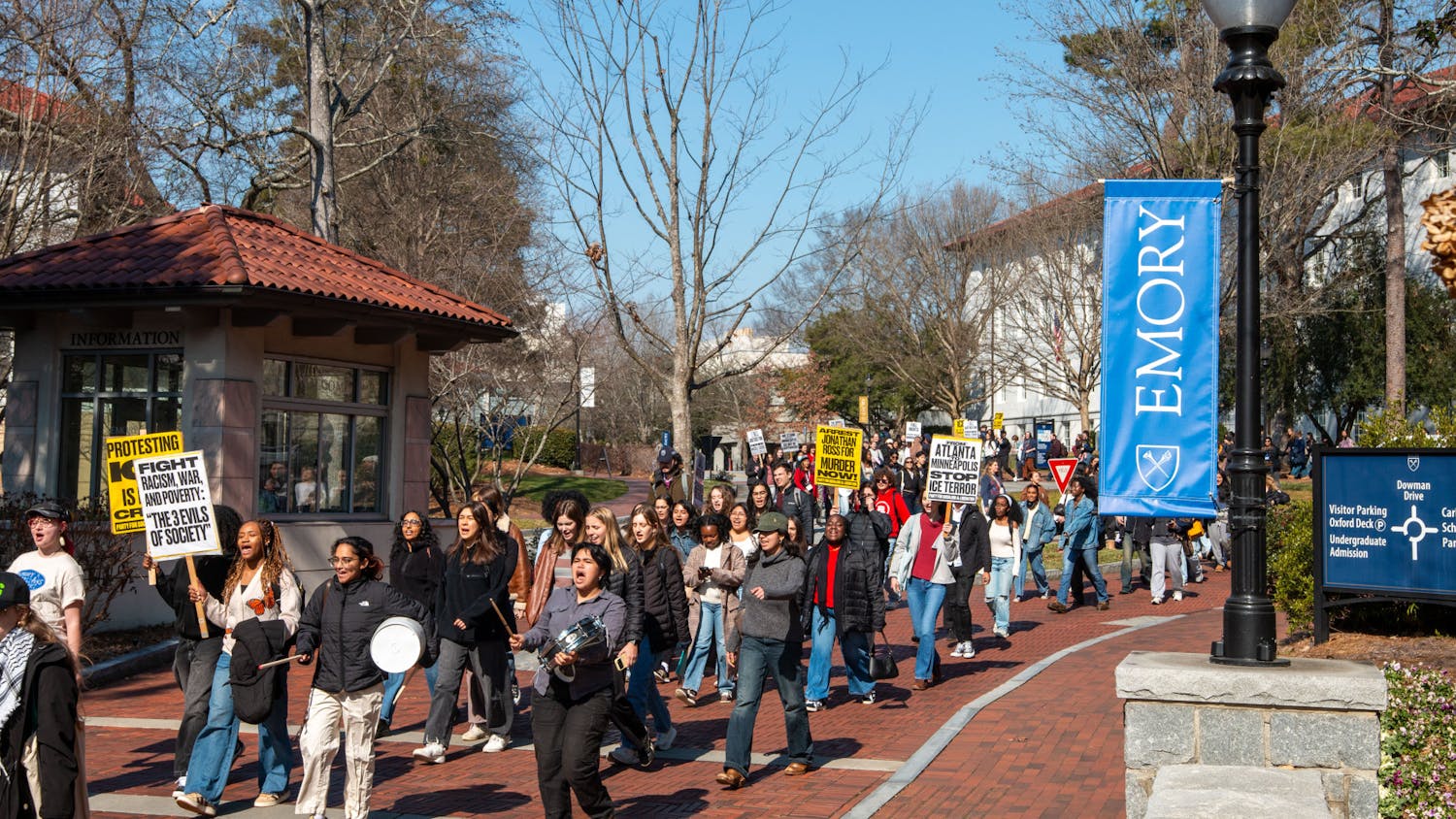Natalie Mering is obsessed with artificial intelligence, which I know because she brought it up three times during her April 4 show at the Eastern, the Atlanta stop on her “In Holy Flux” tour. The singer, who uses the stage name Weyes Blood, is performing across North America and Europe in the coming months. Dressed in a white gown with flowing brown hair, her silhouette turned into a blur by hazy lights, Mering looked like a statuesque hologram; a Greek goddess or a Biblical painting that had been projected onto the stage. Bathed in blue and purple light and weaving easily between the candelabras lighting the set, Mering played songs from her albums “And in the Darkness, Hearts Aglow” (2022) and “Titanic Rising” (2019). Her idyllic voice, reminiscent of 1970s singer Karen Carpenter and folk legend Joni Mitchell, transported the audience into another dimension, where myth, lost love and passing time are all that are real.

Mering began with the single “It’s Not Just Me, It’s Everybody,” a song about living in a time of change and feeling lonely in a room full of people, which made it a fitting opening for a performance at the jam-packed Eastern. This theme hovered over the audience for the entire show. I think the entire venue identified with Mering’s sentiment of being surrounded by others but connecting to music in an individual way that is both unifying and isolating.
After the show, my friends and I walked to one of their apartments, wandering by Cabbagetown bungalows and through the Krog Street Tunnel, which was so fluorescently lit and covered in graffiti that it also felt like another world. We didn’t say much, choosing to bask in the aftermath of Mering. It was like waking up from a dream; like leaving church on Sunday and stepping out into the sunlight, feeling alone but simultaneously, together. We all saw the same concert, yet Mering evoked different emotions in each of us.
A standout from the performance was Mering’s gorgeous appeal to a higher power, “God Turn Me Into a Flower.” In the song, she intertwines the myth of Narcissus with her desire to exist in a world that praises people for being soft and delicate like a flower, when in reality it scorns vulnerability and demands narcissism. “’Cause the person on the other side has always just been you,” she sang. “Oh, God, turn me into a flower.” As the organ swelled and Mering crept across the stage, the screen lit up with collage that documentary filmmaker Adam Curtis had pasted together. Black and white eyes blinked at the audience before mundane, yet somehow haunting, images of people going about their daily lives overtook the screen. It was as if Mering was begging the audience to give her a break from the hustle and bustle of everyday life. The hairs on my arm stood up as I, too, wished to be turned into a flower.

Mering’s performance brought true meaning to the term “collective effervesce:” the almost-indescribable feeling of togetherness and belonging that going to a concert, a parade or a sports game brings you. It is the emotion that comes from deep within your chest; an awareness that everybody in that venue felt something during the performance. Mering riddled “Grapevine,” the second single off her latest album “And in the Darkness, Hearts Aglow,” with references to James Dean and Southern California, but at its crux is a story that everybody can relate to. Mering sang, “Now we’re just two cars passing by / On the grapevine.” As she danced across the stage, light flowing through her body and catching in her dress, an awareness that every single person in the audience had a person to whom they were just a car passing by overcame me: somebody they love and whose past is inextricably connected to theirs. “And I was yours for a time,” Mering sang. Her voice filled with yearning, acknowledging that being in love with somebody doesn’t always mean being with them.
It makes sense to me why musicians make music. It is for the same reason that writers write: to take an emotion that is complex and painful and turn it into something that brings people together. The crowd swayed side to side in disjointed harmony, passing DVDs to the stage when Mering asked and laughing in unison when Mering joked that the next song would be a rave song before launching into “Andromeda,” a heart-wrenching song off “Titanic Rising” about the myth of Andromeda and the pain women carry into relationships.
At the show’s beginning, Mering asked the audience what they would do if their partner turned out to be artificial intelligence. “What would you do?” she asked. “We break up with the robots, don’t we?” After Mering’s performance, I know one thing is sure: she doesn’t need to be so worried about artificial intelligence, as a robot cannot be programmed to feel what the crowd at the Eastern felt last Tuesday night. To be human is to want God to turn you into a flower, to sit at a party and wonder if anybody knows you — and every other theme of existentialism and being Mering incorporates into her music. That cannot be coded.

Sophia Peyser (she/her) (25C) is from New York City, majoring in creative writing and environmental science. Outside of the Wheel, Peyser has worked as a content writer and freelance journalist. You can find her reading Sally Rooney novels or working shifts at a Brooklyn bakery.









